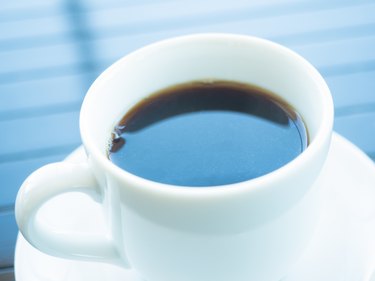
Supraventricular tachycardia -- SVT -- is a heart rhythm problem that is usually harmless but can be frightening and annoying. During an episode of SVT, the heart can go from beating a normal 70 to 80 beats per minute to 160 to 200 beats per minute. Episodes last from a few minutes to a few hours. SVT can be a lifelong problem, but is most common in young children. There are foods that could trigger an episode.
Causes
Video of the Day
SVT is usually caused by an underlying heart abnormality but episodes can be triggered by anything that triggers a premature heart beat, making the heart rhythm race abnormally. The underlying cause is usually an additional electrical pathway in the heart. Episodes can be caused by exercise, medications that cause an elevated heart rate such as weight loss drugs, or foods that contain caffeine.
Video of the Day
Foods to Avoid
The underlying causes of SVT cannot be treated or prevented with a special diet, but people with SVT should avoid foods that quicken the heart rate, including caffeine and alcohol. Foods that contain caffeine include coffee, tea, chocolate and some sodas. Avoid all caffeine, including decaffeinated versions of coffee and tea as they still contain small amounts of caffeine.
Maintain Healthy Weight
Maintaining a healthy weight can help manage your SVT. Eating a healthy diet low in fat, sugar and processed food will help you do this. If you need to lose weight, work with a nutritionist to come up with a diet and do not take diet medications or herbs such as ephedra as they may trigger SVT.
Treatment
SVT is usually treated with processes that interrupt the episode. These include mimicking straining as if you are constipated, plunging your face in ice cold water or massaging an area of the carotid artery. If those actions don't work, prescription medications such as adenosine may help. If an episode of SVT lasts longer than 20 minutes, get immediate medical attention.